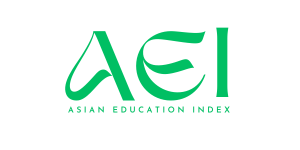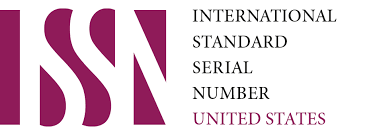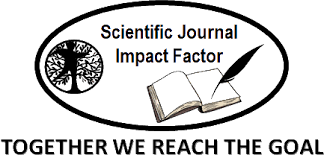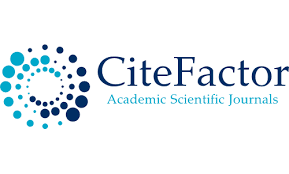Theoretical Foundations of Professional Training of Future Teachers on the Basis of the Integration Approach
Keywords:
natural-mathematical cycle, didactic system, psychological-pedagogicalAbstract
Deficiencies in the process of professional-pedagogical and methodical training of future teachers of higher education institutions, problems and methods of their elimination, as well as issues of thinking ability, academic motivation, the ability to work in a team in network projects, and the impact of interdisciplinary communication on the quality of students' knowledge and skills illuminated
References
Abdullaeva B.S. Fanlararo alokadorlikni metodologik-didaktik asoslari (ijtimoiy-gumanitar yo’nalishdagi akademik letseylarda matematika o’qitish misolida
Alixonov S. Matematika o’qitish metodikasi. − Toshkent: O’qituvchi, 2011.
Yunusova D.I. Uzluksiz tahlim tizimi matematika o’qituvchisining innovatsion faoliyati mazmuni va tarkibi // Pedagogik tahlim. – Toshkent, 2008.
Oliy tahlim tizimini yanada rivojlantirish chora-tadbirlari to’g’risida. O’zbekiston Respublikasi Prezidentining PQ-2909-son Qarori. 2017 yil 20 aprel.
Salomov A.A. Matematikaning fanlararo aloqadorlik funktsiyasi asosida yuqori sinf o’quvchilarining ko’nikma va malakalarini rivojlantirish: Dis. … ped.fan.nom. – Toshkent, 1998. – 182
Yusupova N. Theoretical and methodological bases of interdisciplinary relations of the natural mathematical cycle in preparation of a future teacher in a pedagogical university. European Journal of Research and Reflection in Educational Sciences Vol. 8 No. 3, 2020 Part II.
Mamatkulov M.V. Develop the creative abilities of future teachers. European Journal of Research and Reflection in Educational Sciences. 2020, 99 pp
Mamatkulov M.V. Development of creative methods of students by pedagogical education in educational activities theoretical bases. Scientific bulletin of the Tashkent state pedagogical university. Tashkent 2021, 173 b.
Mamatkulov M.V. Formation of creative talents as a necessary condition of qualitative training of future teachers. Scientific bulletin of the Tashkent state pedagogical university. Tashkent 2021, 76 b.
Mamatkulov M.V. Organization of experimental research and diagnosis of the formation of students 'creative abilities. Scientific bulletin of the Tashkent state pedagogical university. Tashkent 2021, 177 b.
Mamatkulov M.V. The problem of individual creative opportunities in modern theory and practice. Scientific bulletin of the Tashkent state pedagogical university. Tashkent 2021, 183 b.
Mamatkulova M.V. Features of formation of pedagogical creative abilities of future teachers / M. V. Mamatkulova // Развитие современной науки и образования: актуальные вопросы, достижения и инновации : сборник статей Международной научно-практической конференции : в 2 ч., Пенза, 20 января 2022 года. Vol. Часть 2. – Пенза: Наука и Просвещение (ИП Гуляев Г.Ю.), 2022. – P. 162-164. – EDN XPLBEI.
Mamatkulova M.V. Pedagogical conditions for the development of creative talents of students of a pedagogical university in teaching process. Scientific bulletin of the Tashkent state pedagogical university. Tashkent 2021, 181 b.
Yusupova N.V. System of Professional Competence Development of Future Teachers in the Field of Science and Communication. Annals of R.S.C.B., Vol. 25, Issue 4, 2021, Pages. 14211 – 14215
Yusupova N.V., Mahmutaliev R.R. Fanlararo integratsiyalashuv vositasida kimyo-matematika fanlarini o‘qitish metodikasi. Oliy ta’lim tizimida masofali ta’limni joriy etishning texnik-dasturiy va uslubiy ta’minotini takomillashtirish istiqbollari respublika ilmiy-amaliy konferensiyasi. Qarshi – 2021. 53-56 b.
Downloads
Published
Issue
Section
License

This work is licensed under a Creative Commons Attribution-NonCommercial 4.0 International License.
User Rights
Under the Creative Commons Attribution-NonCommercial 4.0 International (CC-BY-NC), the author (s) and users are free to share (copy, distribute and transmit the contribution).
Rights of Authors
Authors retain the following rights:
1. Copyright and other proprietary rights relating to the article, such as patent rights,
2. the right to use the substance of the article in future works, including lectures and books,
3. the right to reproduce the article for own purposes, provided the copies are not offered for sale,
4. the right to self-archive the article.













